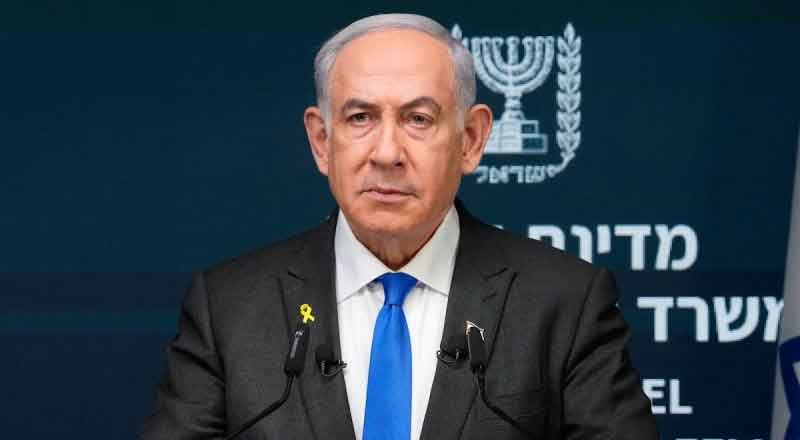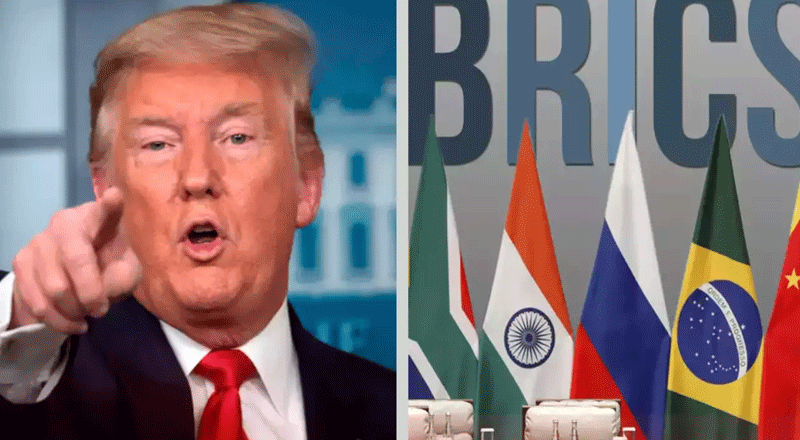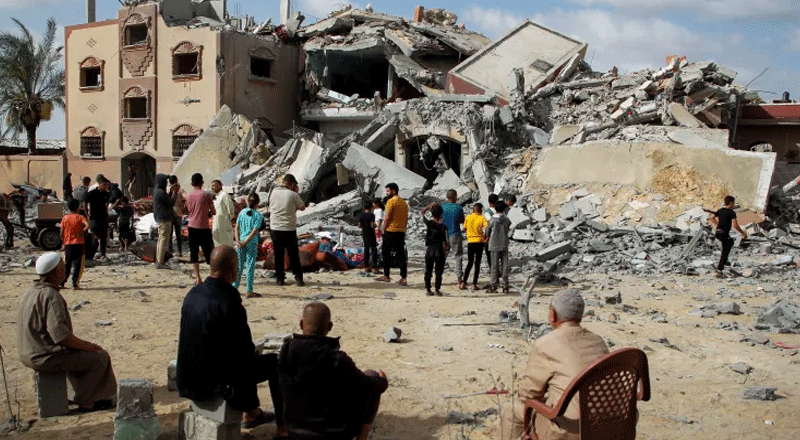The conflict between Hezbollah and Israel has its roots in the broader geopolitical struggles of the Middle East, where Lebanon’s Hezbollah, a Shiite Islamist political and militant group, is a significant actor. Founded in the 1980s with Iranian support, Hezbollah has grown into a powerful political and military force, primarily based in Lebanon. Over the decades, tensions between Hezbollah and Israel have flared into periodic military confrontations, the most notable being the 2006 Lebanon War. Hezbollah’s military activities, heavily backed by Iran, continue to challenge Israeli sovereignty, and the conflict is deeply intertwined with the broader Israeli-Palestinian dispute, as well as the regional dynamics involving Syria and Iran.
In recent months, the conflict between Hezbollah and Israel has escalated once again, with Israel launching military operations against Hezbollah strongholds, sparking fears of a broader conflict engulfing Lebanon.
Netanyahu’s Ultimatum to Lebanon: Free Yourself from Hezbollah or Face Destruction
In a stern warning, Israeli Prime Minister Benjamin Netanyahu addressed the people of Lebanon on Tuesday, urging them to distance themselves from Hezbollah or risk severe destruction similar to what Gaza has been experiencing in the ongoing Israeli-Palestinian conflict. “You have a chance to save Lebanon before it descends into a prolonged war that will bring devastation similar to that seen in Gaza,” Netanyahu stated. He emphasized that Lebanon stood at a critical crossroads, urging its citizens to take action against Hezbollah, which he claims is leading the country into war with Israel.
Netanyahu’s ultimatum came as Hezbollah stepped up its rocket fire on Israel, marking a significant escalation in hostilities between the two entities. He warned that Hezbollah’s continued use of populated areas to launch attacks against Israel could bring about widespread suffering for the Lebanese people, as Israel intensifies its military response.
Hezbollah’s Escalation: Rocket Barrages and Ground Clashes
Following Netanyahu’s statement, Hezbollah launched a fresh barrage of rockets into Israel, including strikes as far south as Haifa, a major coastal city. This continued rocket fire has forced tens of thousands of Israelis living near the Lebanese border to flee their homes. The Israeli military responded by deploying more ground troops into southern Lebanon, intensifying the conflict.
The Israeli Defense Forces (IDF) also reported that a senior Hezbollah commander was killed in an Israeli airstrike, further exacerbating tensions. Hezbollah’s acting leader, Sheikh Naim Kassem, vowed to maintain pressure on Israel, boasting that Hezbollah’s military capabilities remained largely intact despite weeks of Israeli airstrikes and the assassination of key Hezbollah figures.
Hezbollah’s ongoing attacks, alongside Israel’s counterstrikes, have led to significant casualties and destruction on both sides of the border. In Lebanon, over 2,100 people have been killed, and 1.2 million people have been displaced by the bombardment, raising fears of a protracted and devastating conflict.
Israel’s Ground Operations and the Humanitarian Crisis
Israel’s ground operations in southern Lebanon have intensified in recent weeks. The Israeli military, while not disclosing the exact number of troops deployed, has announced the presence of four divisions near the Lebanese border, involving thousands of soldiers. Heavy fighting has occurred in multiple areas, with Hezbollah militants engaging Israeli forces in fierce ground clashes. Artillery and rocket attacks have been exchanged regularly, heightening the risk of a broader regional war.
The scale of destruction in Lebanon is reminiscent of Israel’s ground offensive in Gaza, which has turned entire neighborhoods into rubble. Israeli airstrikes have hit key areas in Beirut’s southern suburbs, targeting Hezbollah leaders and military infrastructure. The Israeli government has warned that Hezbollah’s continued aggression will result in more devastation for Lebanon, drawing comparisons to the Israeli operations in Gaza that have left thousands dead and displaced millions.
Leadership Shifts and Rising Tensions
As the conflict continues, Hezbollah is also facing internal changes. The group’s long-time leader, Hassan Nasrallah, was reportedly killed in an Israeli airstrike in late September. Sheikh Naim Kassem, Hezbollah’s acting leader, confirmed that a successor would be named soon, though the circumstances of the ongoing war make this process challenging. Israel claims to have killed Nasrallah’s likely successor, Hashem Safieddine, further complicating Hezbollah’s leadership transition.
Prime Minister Netanyahu hailed the assassinations of Hezbollah’s top commanders as major victories, claiming that Israel’s military strikes were crippling the militant group’s leadership. However, Hezbollah has continued its attacks, demonstrating its resilience even as it suffers significant losses.
International Concerns and U.S. Involvement
The escalating conflict between Hezbollah and Israel has drawn the attention of the international community, particularly the United States. President Joe Biden is expected to speak with Netanyahu about Israel’s military strategy, particularly in light of concerns about a potential Israeli strike on Iran, Hezbollah’s primary backer. The U.S. is reportedly working to ensure that any Israeli retaliation remains measured and does not escalate into a full-scale regional war.
Iran, meanwhile, has warned Israel against attacking its infrastructure, threatening retaliation if its facilities are targeted. The situation has raised fears that the conflict between Hezbollah and Israel could ignite a larger war involving Iran and potentially other regional powers.
A Region on the Brink
The ongoing conflict between Hezbollah and Israel has brought Lebanon to the brink of disaster, with heavy fighting, rocket attacks, and airstrikes causing widespread destruction and displacement. Netanyahu’s ultimatum to the Lebanese people highlights the gravity of the situation, as Israel pushes for the removal of Hezbollah’s influence in Lebanon, while Hezbollah continues to retaliate with rocket barrages and ground clashes. The potential for this conflict to expand further, drawing in Iran and other regional actors, makes the current hostilities a flashpoint with global implications.
As diplomatic efforts continue, the situation remains highly volatile, with both sides unwilling to back down. Lebanon, already battered by years of political and economic instability, now faces the prospect of even greater destruction unless a resolution can be found to de-escalate the conflict.
(With inputs from agencies)





